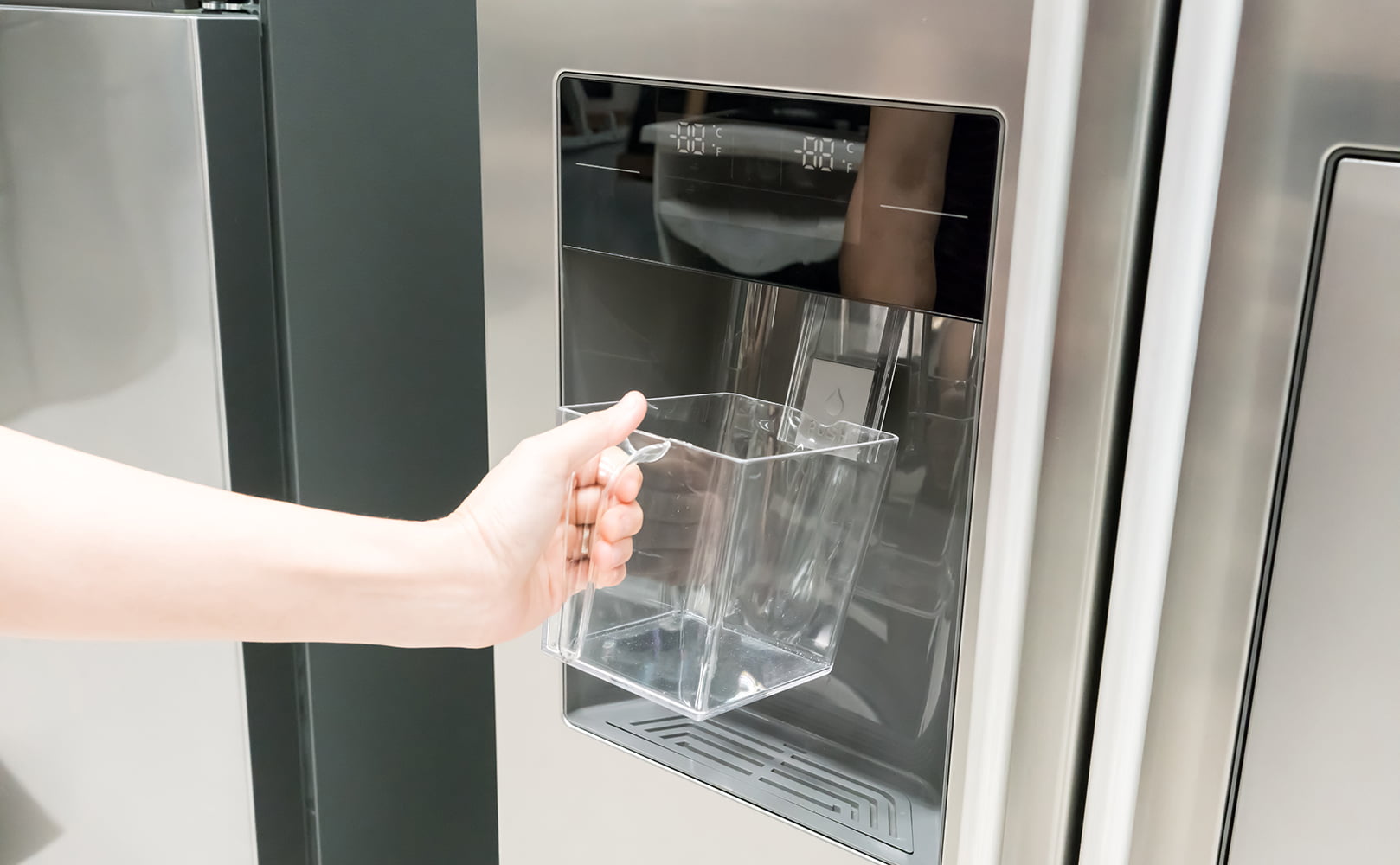Reverse Osmosis Ice Maker Problems – What You Need to Know
Written by: Alexandra Uta // Last Updated: Aug 7, 2023
This page may contain affiliate links. If you buy a product or service through such a link we earn a commission at no extra cost to you. Learn more.
While connecting a reverse osmosis system to an ice maker is definitely possible and not that complicated, it also comes with some caveats that you need to keep in mind.
You should be very familiar with the state of your ice maker and its internals, as well as have some general information about your home’s plumbing.
So, reverse osmosis ice maker problems – here is what you need to know.
Key Takeaways
- Various problems can arise when using a reverse osmosis system with an ice maker.
- You need to pay attention to your piping, water pressure, and water volume in particular.
Reverse Osmosis Ice Maker Problems – What You Need to Know
There are several potential problems involved in hooking up a reverse osmosis system to an ice maker. As long as you take care of those factors from the beginning, you shouldn’t have any issues later on.
Will My Ice Maker Even Work with Reverse Osmosis Water?
Yes, ice makers work just fine with reverse osmosis water. Or at least that’s true as far as the ice making process itself is concerned.
The piping of the ice maker’s internals is a different story. Reverse osmosis water can leach copper from the piping and introduce it into the ice that the machine creates. This can be a health concern.
Compatibility (Low Water Pressure)
It’s important to verify that the pressure of your plumbing is sufficient to handle this configuration. A reverse osmosis system will result in a noticeable drop in water pressure. This can affect the operation of a refrigerator or ice maker. In some cases, the difference is so severe that the device will simply stop working.
Corrosion of Copper Pipes
What we mentioned above about issues with copper pipes could also cause leaking. Why? Reverse osmosis water is more corrosive and can wear out copper piping over time, eventually causing leaks.
Low Water Volume
If you don’t use a second storage tank, you will often run out of fresh water. That’s because your ice maker will constantly drain the storage tank intended for other applications. This is why it’s recommended to use a second storage tank if you’re doing this.
Small Ice Cubes
Sometimes your ice maker won’t have enough water to produce ice cubes of a normal size. In this case, your cubes will come out noticeably smaller. This is a problem that comes up frequently in situations involving the combined use of a reverse osmosis filter and an ice maker, and is usually related to storage tank capacity and pressure.
If you have any questions about reverse osmosis ice maker problems please don’t hesitate to leave a comment below!
Information provided on BOS is for educational purposes only. The products and services we review may not be right for your individual circumstances.
We adhere to strict editorial guidelines. Rest assured, the opinions expressed have not been provided, reviewed, or otherwise endorsed by our partners – they are unbiased, independent, and the author’s alone. Our licensed experts fact-check all content for accuracy. It is accurate as of the date posted and to the best of our knowledge.


